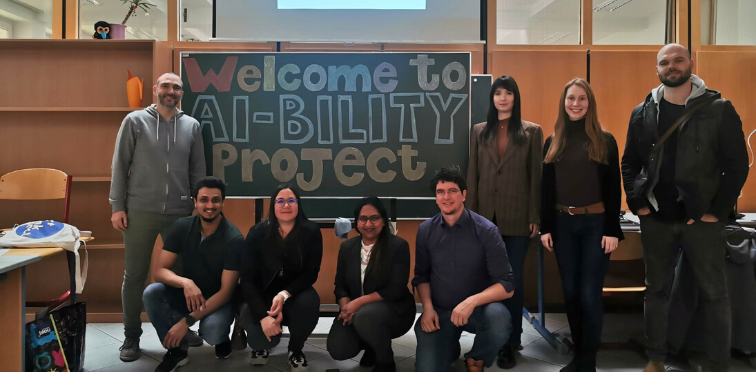Another series of experiments of the AI-Bility project
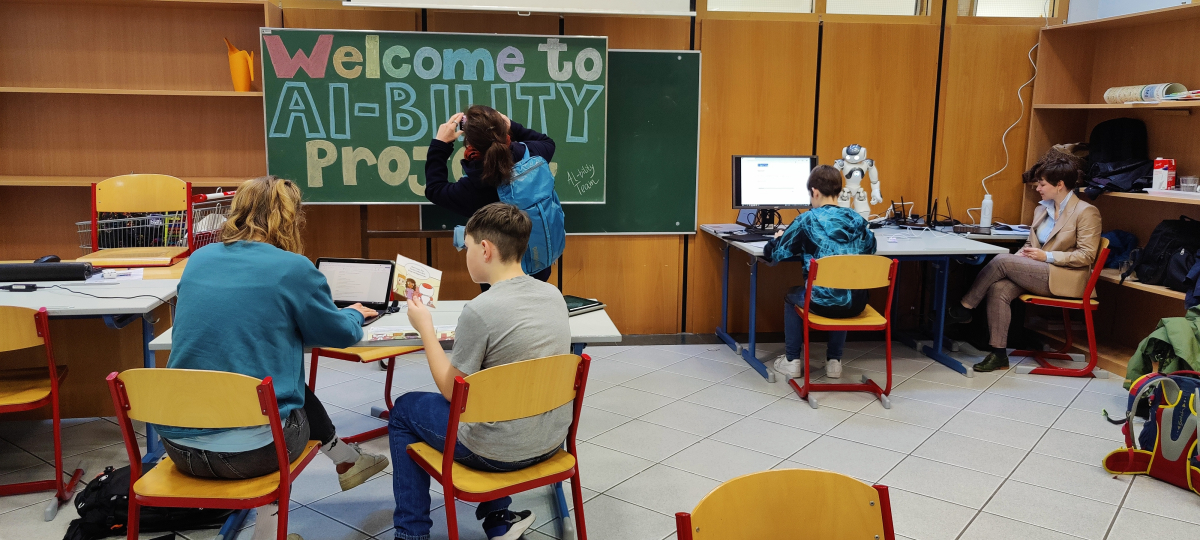 The Erasmus+ funded research project "AI-Bility" investigates how schoolchildren interact with Artificial Intelligence (AI) in the context of chatbots, voice assistants and robots and how they integrate them into learning activities. The project is in collaboration with the University of Münster, the University of Liechtenstein and the Grenoble Ecole de Management and is supervised and conducted by Dr. Leona Chandra Kruse, Dr. Isabella Seeber, Dr. Katrin Bergener, Dr. Armin Stein and Kilian Müller.
The Erasmus+ funded research project "AI-Bility" investigates how schoolchildren interact with Artificial Intelligence (AI) in the context of chatbots, voice assistants and robots and how they integrate them into learning activities. The project is in collaboration with the University of Münster, the University of Liechtenstein and the Grenoble Ecole de Management and is supervised and conducted by Dr. Leona Chandra Kruse, Dr. Isabella Seeber, Dr. Katrin Bergener, Dr. Armin Stein and Kilian Müller.
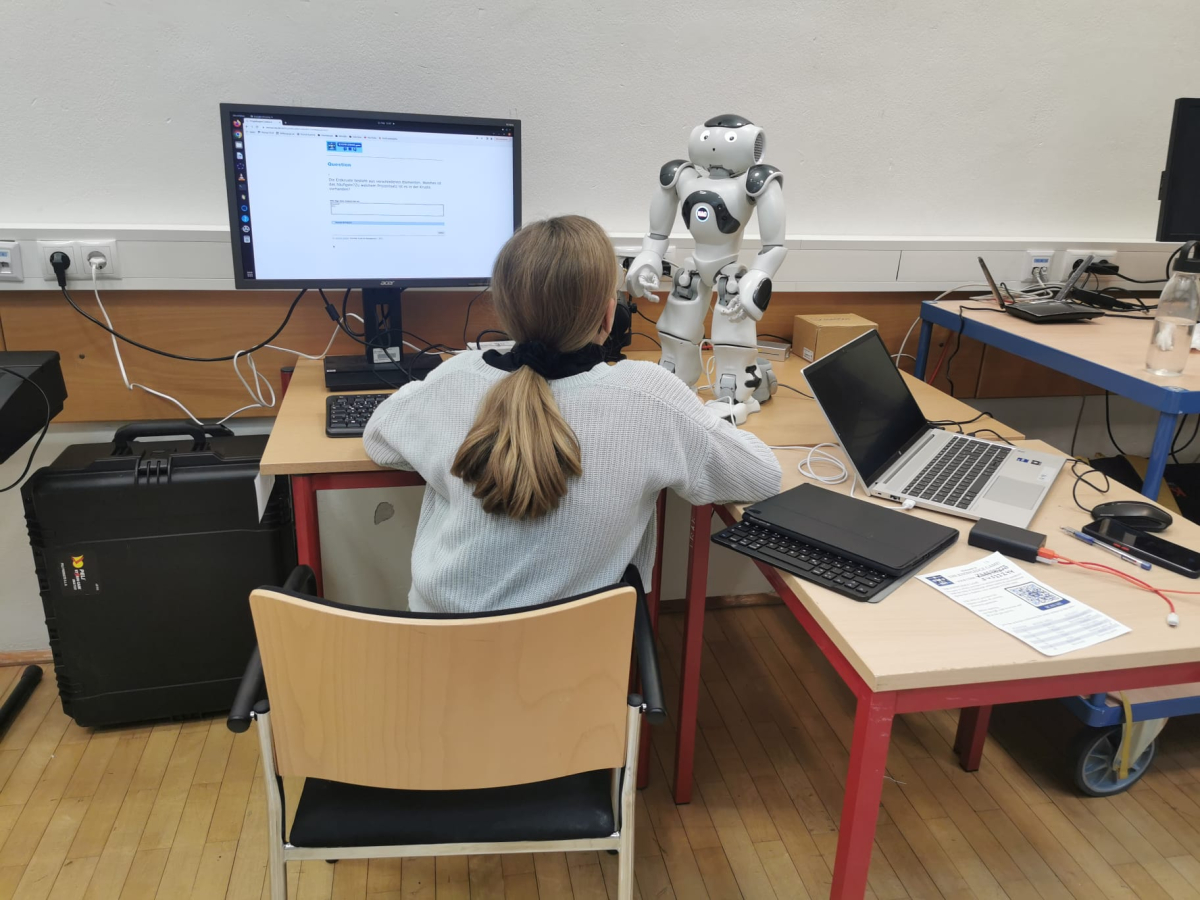 As a consequence of the Corona pandemic, AI-based products play an increasingly important role in processes of learning. Especially smart toys, adaptive learning applications, and digital assistants that can communicate with conversational agents using natural language have been used more frequently by young people in the last few years.
As a consequence of the Corona pandemic, AI-based products play an increasingly important role in processes of learning. Especially smart toys, adaptive learning applications, and digital assistants that can communicate with conversational agents using natural language have been used more frequently by young people in the last few years.
Even though the adoption of such AI-based conversational agents is becoming more widespread, there has been little scientific research on how schoolchildren actually use them. Different interactions and experiences could evolve within this context, robots with a haptic character might be perceived differently than other digital applications for instance. The project therefore addresses a topic that will become more important in the coming years due to the increasing use of AI-based conversational agents for learning and leisure activities.
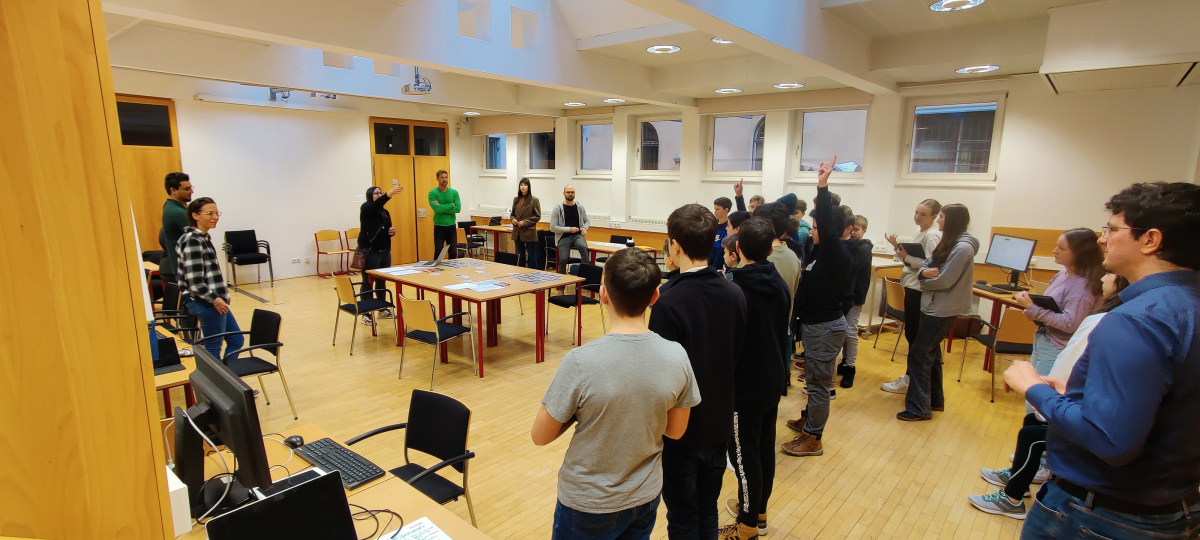 The focus group are 11–13-year-old students in Germany, Liechtenstein and France. After the first series of experiments was conducted at an international school in Grenoble, the second series with a larger number of schoolchildren was conducted at a Bundesrealgymnasium in Innsbruck. The team of scientists observed and evaluated how students perceive robots, chatbots and voice assistants and how they interact and learn with these types of AI.
The focus group are 11–13-year-old students in Germany, Liechtenstein and France. After the first series of experiments was conducted at an international school in Grenoble, the second series with a larger number of schoolchildren was conducted at a Bundesrealgymnasium in Innsbruck. The team of scientists observed and evaluated how students perceive robots, chatbots and voice assistants and how they interact and learn with these types of AI.
T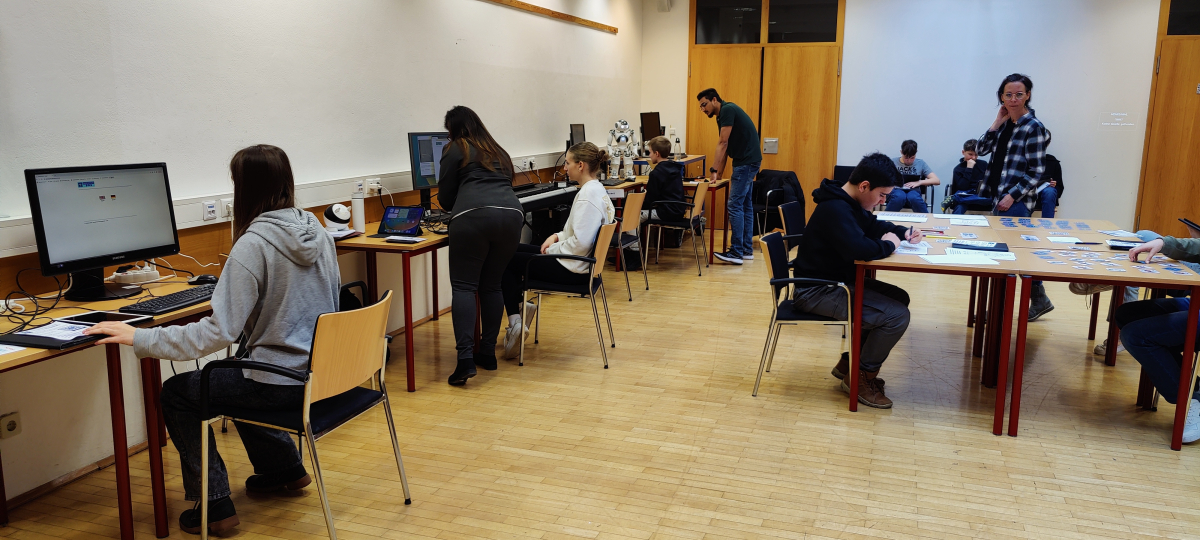 he research project takes into account the digital gap between schoolchildren and their caregivers as well as the cultural gap between digital natives and digital immigrants. Based on the results of the study, know-how will be provided on how parents and teachers can guide students' interaction with different technologies.
he research project takes into account the digital gap between schoolchildren and their caregivers as well as the cultural gap between digital natives and digital immigrants. Based on the results of the study, know-how will be provided on how parents and teachers can guide students' interaction with different technologies.
More information and further updates on the “Ai-Biliy” project can be found on the blog: https://ai-bility.eu/
